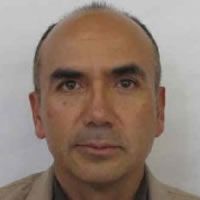Dr. Luis A. Trejo is currently an Associate Research Professor in the Department of Computer Science at the Instituto Tecnológico y de Estudios Superiores de Monterrey, Campus Estado de México (ITESM CEM), Mexico. He received his M.Sc. degree in Computer Science in 1989 from CINVESTAV of the Instituto Politécnico Nacional, Mexico, and his Ph.D. degree in Computer Science in 1993 from the Claude-Bernard University of Lyon, France.
His topics of interest are Artificial Intelligence and machine learning applied to areas of health (timely diagnosis of mental disorders) and cybersecurity, among others. Member of the Applied Artificial Intelligence Research Group. He has published 19 JCR Q1/Q2 research papers in the last 8 years and has obtained several industry certifications. He has been invited as a speaker in more than 40 forums. He has supervised 22 MS theses and 3 PhD theses. He is currently supervising 4 Ph.D. and 2 M.Sc. theses.
He received the Borrego de Oro for research in 2009. He is a member of the National System of Researchers, Level I since January 2015.
Within the context of the Cisco Networking Academy academic program, which operates worldwide, Dr. Trejo served as the Primary Contact for the ITESM CEM Instructor Training Center as well as a certified CCNA/CCNP/CCAI instructor. Within this same context he served as a member of the technical review team for the development of the CCNP (Cisco Certified Network Professional) curriculum from 2001 to 2003.
At the invitation of the IEEE, Mexico Section, he served as Secretary of Student Activities during the 2005-2006 period. Luis Trejo was part of the evaluation committee for the allocation of funds from CUDI (Consortium of Universities for the Development of Internet 2). He was coordinator of the GRID and Supercomputing community of CUDI (2007-2013).
He was leader of the LA-GRID project (sponsored by IBM) and of PROIDEAL PLUS - Mexico, a project funded by the 7th Framework Program of the European Commission to promote cooperation in ICT research between Europe and Latin America. He served as technical coordinator of WINDS-LA, Mexico, EC FP6 project, from 2007 to 2009. He was appointed as technical coordinator of the Cloud Computing project, an academic initiative led by IBM and Google. He served as Technical Coordinator of the GISELA (Grid Initiatives for e-Science virtual communities in Europe and Latin America) program, funded by the European Community and aimed at developing GRID computing infrastructure in Latin America and Europe to support e-Science applications.
Recent international collaborations: University of Texas at San Antonio, USA ($35,000 USD), Universities of Exeter and Leeds UK ($15,000 GBP), University of Alberta, Canada ($40,000 CA). NOVUS 2019 and 2021 projects in the area of Stress Resilience and Depression Detection.
He has led 2 technology developments: ELISA project, which seeks to significantly increase the likelihood that a person can be quickly located and assisted in the event of an emergency situation, such as kidnapping, car accident or health crisis. ELISA received a grant from CUDI-CONACyT. In collaboration with NIC Mexico, DNS-ADVP, a DNS Anomaly Detection Visual Platform, which provides a novel visualization that displays DNS traffic online, and a one-class classifier that addresses traffic anomaly detection (https://youtu.be/ZpJ0HODxkIc).

 ltrejo@tec.mx
ltrejo@tec.mx